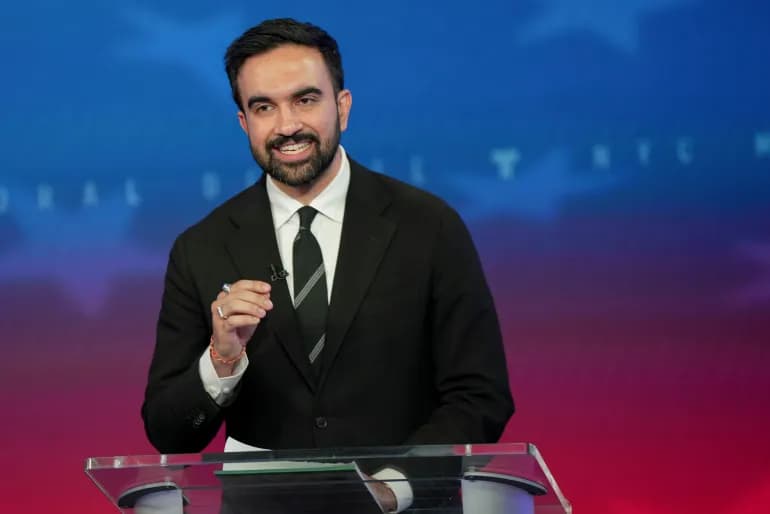We're loading the full news article for you. This includes the article content, images, author information, and related articles.
Democratic nominee Zohran Mamdani and independent candidate Andrew Cuomo engaged in sharp exchanges during the first televised New York mayoral debate, just weeks before voters head to the polls.

New York City's mayoral race intensified on Thursday, October 16, 2025, as Democratic nominee Zohran Mamdani and former Governor Andrew Cuomo, now running as an independent, clashed repeatedly in the first televised debate. Republican nominee Curtis Sliwa also participated, often criticising both Mamdani and Cuomo. The debate, held less than three weeks before the election, saw candidates tackle critical issues facing New Yorkers, including crime, housing affordability, and transportation.
The two-hour debate, broadcast live, quickly devolved into a series of heated exchanges between Mamdani and Cuomo, who are considered the leading contenders. Mayor Eric Adams, who recently withdrew from the race, was not present.
Andrew Cuomo's independent bid marks a significant political comeback attempt following his resignation as New York Governor in 2021 amidst multiple allegations of sexual harassment. During the debate, Cuomo reiterated his primary campaign strategy, questioning Mamdani's qualifications and experience to lead a major city. “This is no job for on-the-job training,” Cuomo stated, adding, “If you look at the failed mayors, they’re ones that have no management experience.”
Zohran Mamdani, a 33-year-old state assemblyman from Queens and a self-described democratic socialist, countered Cuomo's criticisms by highlighting his five years of experience in the New York State Assembly and his personal understanding of the city's challenges. Mamdani emphasised his connection to everyday New Yorkers, stating he is “someone who has actually paid rent in the city” and “who has had to wait for a bus that never came, someone who actually buys his groceries in this city.”
The candidates debated a range of local and national issues, including public safety, policing strategies, the ongoing housing crisis, and the efficiency of the city's transportation systems. Discussions also touched upon how each candidate would navigate relations with the Trump administration and their views on the recent Gaza ceasefire deal.
While the debate offered a glimpse into the candidates' policy positions, it also underscored the deep ideological divides, particularly between Mamdani's progressive platform and Cuomo's more centrist approach. The long-term impact of Cuomo's past controversies on his independent campaign remains a significant unknown, as does the extent to which Sliwa can sway voters from the two frontrunners.
With the election fast approaching, attention will now turn to the second televised debate, which is expected to further clarify the candidates' positions and potentially shift voter sentiment. The candidates' ability to connect with diverse voter demographics across New York City will be crucial in the final weeks of campaigning. The role of endorsements and grassroots mobilisation efforts will also be key determinants in this closely watched mayoral race.
Keep the conversation in one place—threads here stay linked to the story and in the forums.
Sign in to start a discussion
Start a conversation about this story and keep it linked here.
Other hot threads
E-sports and Gaming Community in Kenya
Active 9 months ago
The Role of Technology in Modern Agriculture (AgriTech)
Active 9 months ago
Popular Recreational Activities Across Counties
Active 9 months ago
Investing in Youth Sports Development Programs
Active 9 months ago